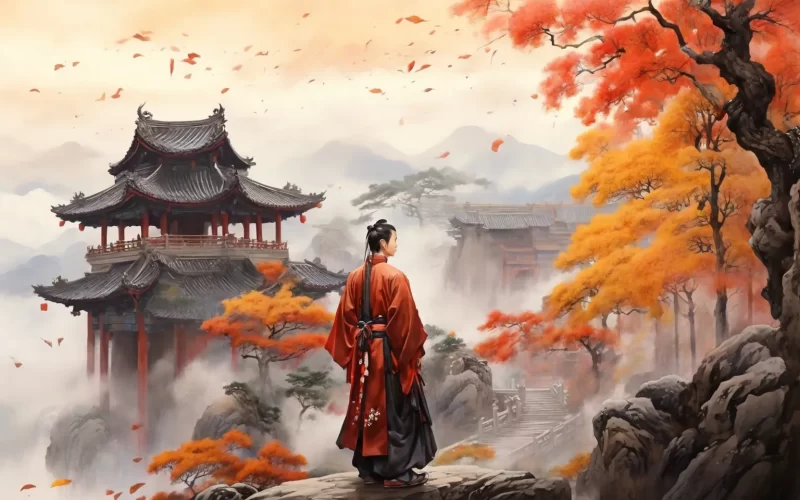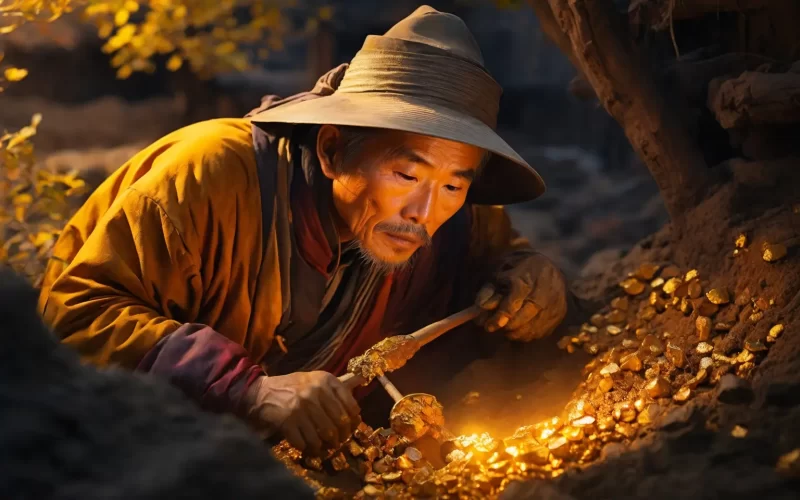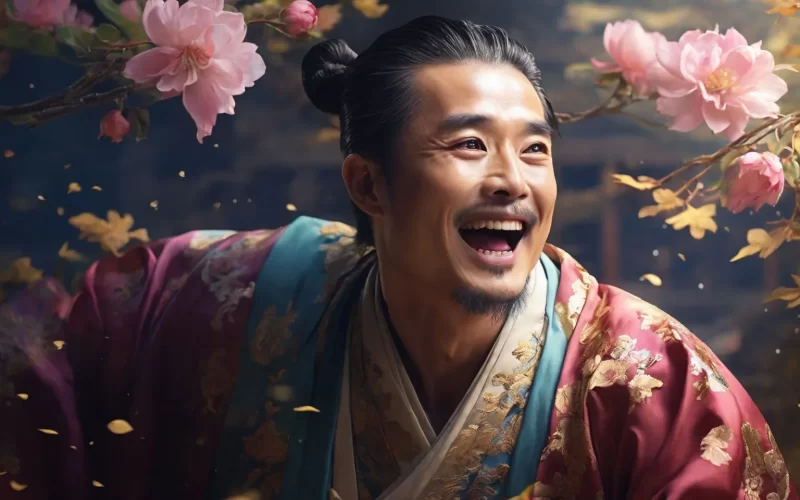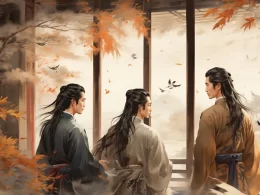I face, high over this enchanted lodge, the Court of the Five Cities of Heaven, And I see a countryside blue and still, after the long rain. The distant peaks and trees of Ch'in merge into twilight, And Han Palace washing-stones make their autumnal echoes. Thin pine-shadows brush the outdoor pulpit, And grasses blow their fragrance into my little cave. ...Who need be craving a world beyond this one? Here, among men, are the Purple Hills!
Original Poem
「同题仙游观」
韩翃
仙台初见五城楼,风物凄凄宿雨收。
山色遥连秦树晚,砧声近报汉宫秋。
疏松影落空坛静,细草香闲小洞幽。
何用别寻方外去,人间亦自有丹丘。
Interpretation
This poem was composed by the poet during a visit to the Xianyou Temple in Shaanxi. Located in the Xiaoyao Valley, the temple was built by Emperor Gaozong of Tang for the Taoist master Pan Shizheng. Through the scenery of his visit, the poet depicts the tranquility and elegance of Xianyou Temple while expressing his longing for a reclusive life.
First Couplet: “仙台初见五城楼 风物凄凄宿雨收。”
Xiān tái chū jiàn wǔ chéng lóu fēng wù qī qī sù yǔ shōu.
At first sight, the temple resembles a towering five-tiered tower; the lingering rain has just ceased, leaving the surroundings cold and desolate.
The opening couplet captures the poet's initial impression of Xianyou Temple. The comparison to a "five-tiered tower" emphasizes its grandeur and adds an air of mystique, while the description of the rain-soaked scenery enhances the temple's serene and secluded atmosphere, setting the stage for the following lines.
Second Couplet: “山色遥连秦树晚 砧声近报汉宫秋。”
Shān sè yáo lián qín shù wǎn zhēn shēng jìn bào hàn gōng qiū.
The distant mountains blend with the trees of Qin in the evening; nearby, the sound of washing mallets signals the autumn chill of the Han palace.
This couplet paints the scenery around the temple, combining the distant view of Qin's trees with the nearby sound of washing mallets. The imagery creates a tranquil yet autumnal mood, with the sound of mallets evoking a sense of melancholy and reflection on the passage of time.
Third Couplet: “疏松影落空坛静 细草香闲小洞幽。”
Shū sōng yǐng luò kōng tán jìng xì cǎo xiāng xián xiǎo dòng yōu.
The sparse shadows of pines fall on the empty altar, enhancing its stillness; the faint fragrance of grass fills the air, deepening the temple's secluded atmosphere.
This couplet shifts to the interior of the temple, further emphasizing its quiet and secluded nature. Through details like the pine shadows and fragrant grass, the poet conveys the temple's serene and otherworldly charm, suggesting its detachment from the mundane world.
Fourth Couplet: “何用别寻方外去 人间亦自有丹丘。”
Hé yòng bié xún fāng wài qù rén jiān yì zì yǒu dān qiū.
Why seek a distant paradise? The mortal world itself holds places like Danqiu.
The final couplet alludes to the classic Distant Journey (Yuan You), expressing the poet's admiration for Xianyou Temple. He marvels at its ethereal beauty, suggesting that such a paradise can be found in the human world, making further searches unnecessary.
Overall Appreciation
The poem unfolds in a layered progression, beginning with the temple's exterior scenery, moving to its tranquil interior, and concluding with a reflective statement. The poet uses the desolate post-rain scenery to highlight the temple's serenity and the sound of washing mallets to evoke a sense of human transience. While the poem lacks intense emotion, it conveys a profound sense of peace and detachment, reflecting the poet's contemplative state of mind.
Writing Characteristics
- Precise Parallelism, Harmonious Rhythm: Couplets like "The distant mountains blend with the trees of Qin in the evening; nearby, the sound of washing mallets signals the autumn chill of the Han palace" and "The sparse shadows of pines fall on the empty altar, enhancing its stillness; the faint fragrance of grass fills the air, deepening the temple's secluded atmosphere" exhibit exquisite parallelism and rhythmic elegance.
- Blend of Real and Imagined Scenery, Clear Structure: The poet begins with the tangible post-rain scenery, then uses the sound of mallets to hint at human emotions. The interplay of distant mountains and nearby temple scenes creates a rich, layered composition.
- Scene and Emotion Intertwined, Evoking Depth: Through the depiction of the temple's serene environment, the poet expresses his longing for a tranquil and detached life, blending scenery and emotion seamlessly.
Insights
This poem, through its portrayal of the serene beauty of Xianyou Temple, expresses the poet's yearning for a life of detachment and tranquility. It reminds us that even within the human world, a paradise-like existence can be found if one cultivates a peaceful and contented mind. True fulfillment and serenity often lie close at hand, rather than in distant, unattainable realms.
Poem translator
Kiang Kanghu
About the Poet
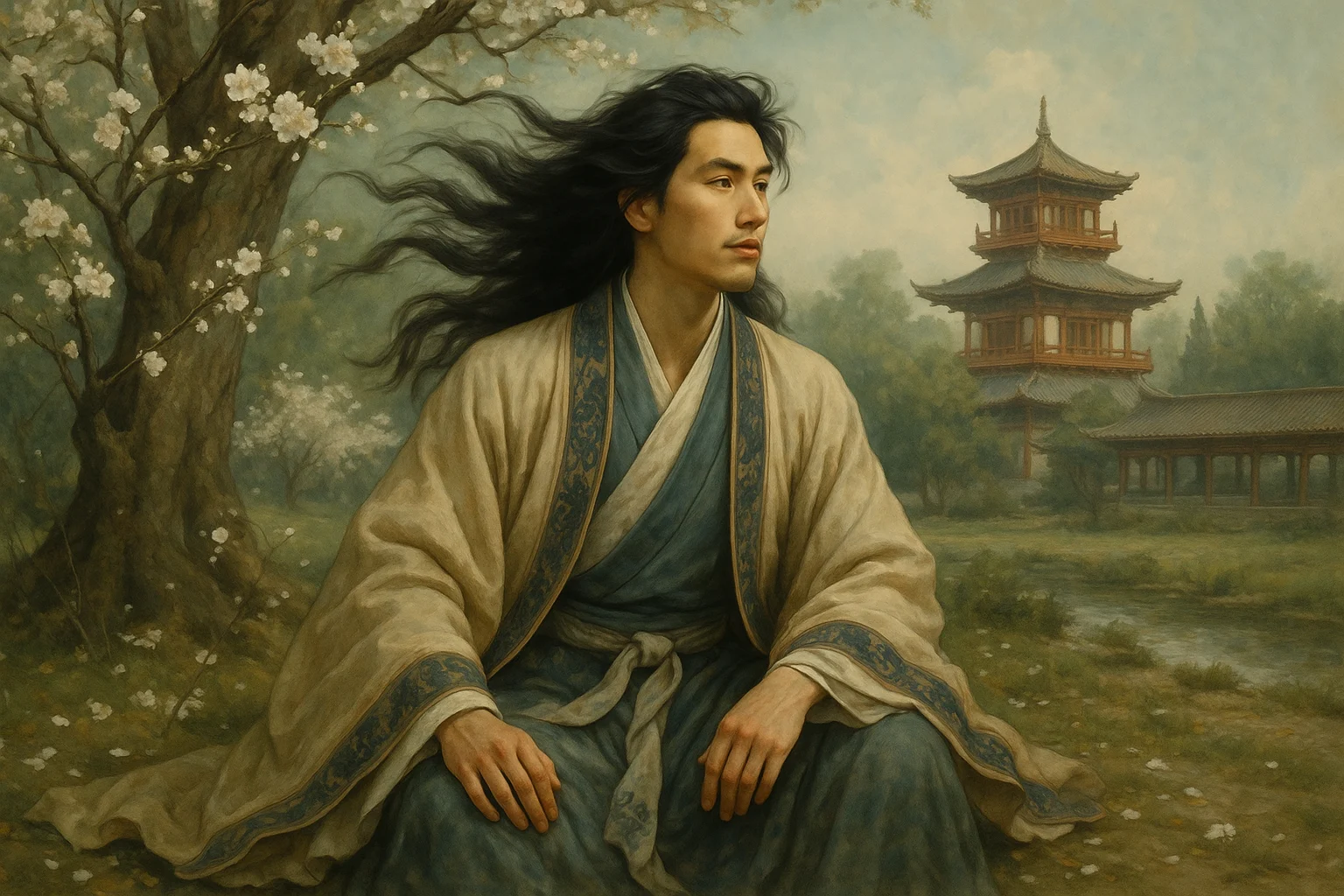
Han Hong(韩翃), a native of Nanyang, Henan, was one of the "Ten Literary Masters of the Dali era" (大历十才子). He was renowned for his poetry, particularly farewell and parting verses, which gained significant acclaim during his time. The Complete Tang Poems (《全唐诗》) preserves three volumes of his works.





